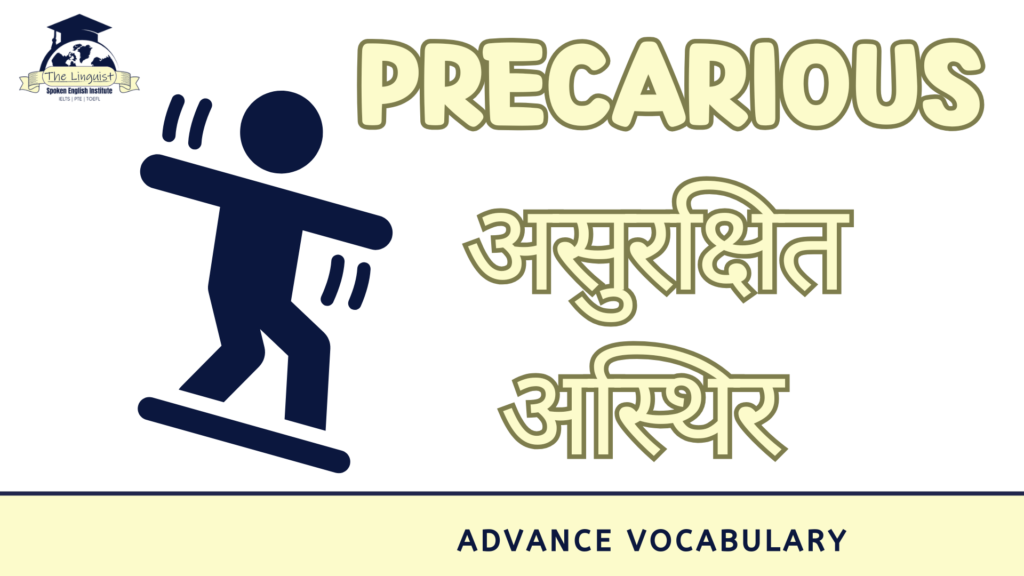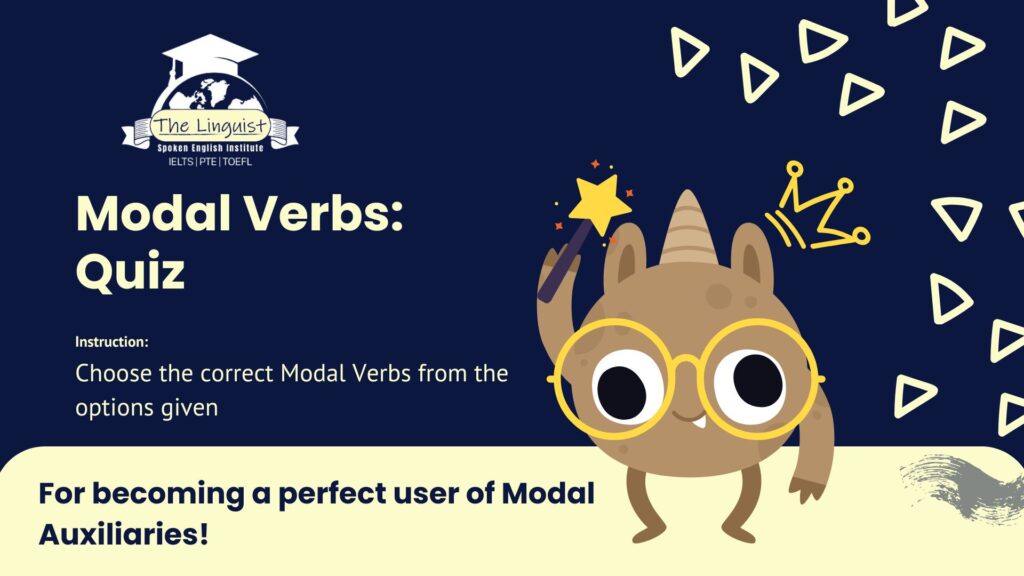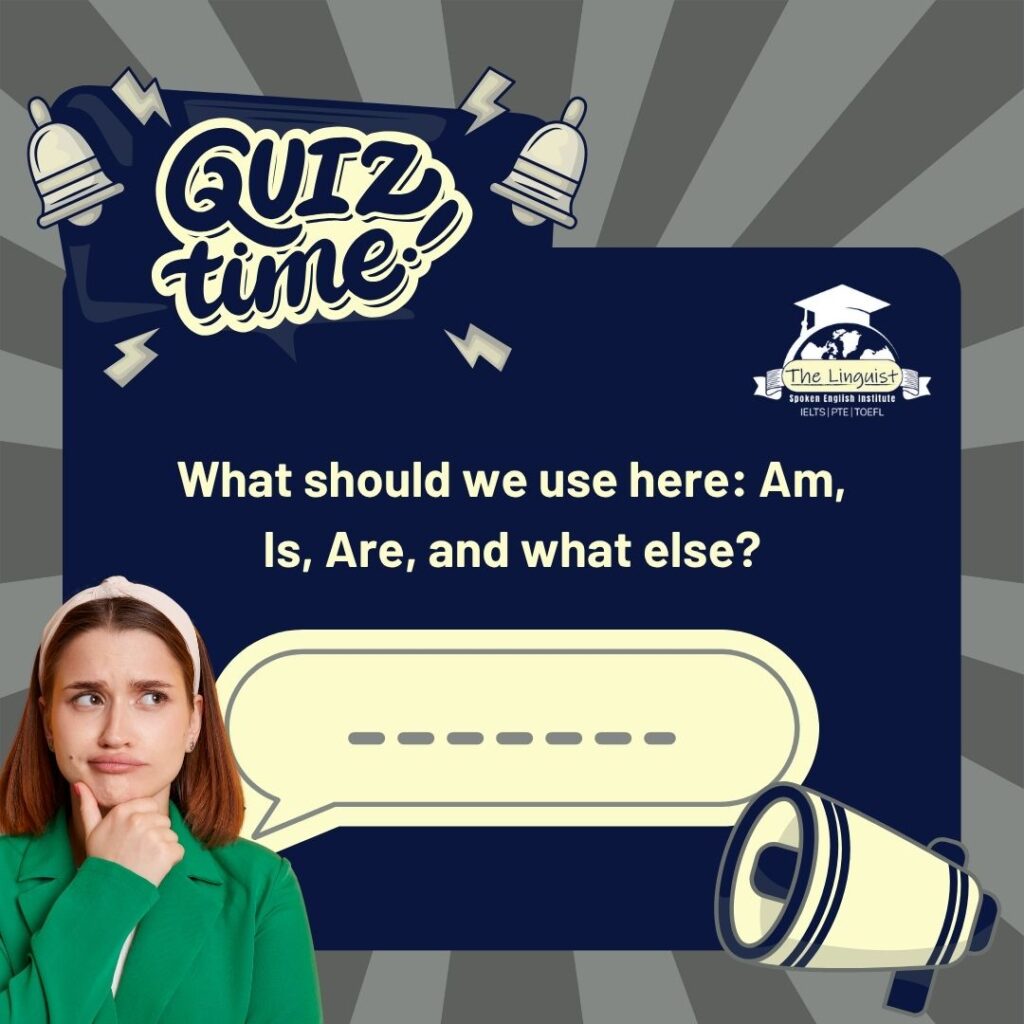Precarious

Sentences with “Precarious” The ladder looks precarious. सीढ़ी असुरक्षित लग रही है। शिडी असुरक्षित दिसत आहे. He stood in a precarious position. वह एक असुरक्षित स्थिति में खड़ा था। तो एका असुरक्षित स्थितीत उभा होता. The chair is precarious on one leg. कुर्सी एक पैर पर असुरक्षित है। खुर्ची एका पायावर अस्थिर आहे. Their […]
Appears and Appeared

Sentences with Appear and Appeared 1. It appears that we have enough time. Hindi: ऐसा लगता है कि हमारे पास पर्याप्त समय है। Marathi: असे दिसते की आपल्याकडे पुरेसा वेळ आहे. 2. It appears to be working fine. Hindi: यह ठीक से काम करता हुआ प्रतीत होता है। Marathi: हे व्यवस्थित काम करत […]
Seem

Sentences with SEEM. She seems very kind. वह बहुत दयालु लगती है। ती खूप दयाळू वाटते. He doesn’t seem ready for the test. वह परीक्षा के लिए तैयार नहीं लगता है। तो परीक्षेसाठी तयार वाटत नाही. Does it seem easy to you? क्या यह तुम्हें आसान लगता है? हे तुला सोपे वाटते का? Why does […]
Questions on Modal Auxiliaries

Questions on Modal Auxiliaries: 1. You ______ (can / may / will) take my umbrella if it starts raining. 2. She ______ (must / should / can) wear her glasses while reading. 3. We ______ (might / will / should) need more chairs for the guests. 4. He ______ (can / could / must) […]
Questions in a conversation form!

Let’s solve this! Ravi looked at Nina and asked, “____________ (1) you free for a quick chat?” Nina nodded and replied, “Yes, I ____________ (2). Just wrapping up a few emails.” Arun walked in, holding a bag. “Hey, ____________ (3) this your bag, Ravi?” Ravi shook his head, “No, it ____________ (4) Nina’s, I […]
Sentences used with a Customer Care

Sentences used with a Customer Care 1. Hello, am I speaking with customer care? हेलो, क्या मैं कस्टमर केयर से बात कर रहा हूँ? हॅलो, मी कस्टमर केअरशी बोलत आहे का? 2. I need help with my account. मुझे अपने खाते में मदद चाहिए। मला माझ्या खात्याबाबत मदतीची गरज आहे. 3. Can you check […]
100 Idioms

100 Idioms for Advanced Speakers in English: 1. A blessing in disguise Meaning: Something that seems bad at first but turns out to have a good result. Explanation: We may not realize it initially, but certain unpleasant events may bring unexpected benefits. Example: English: Losing that job was a blessing in disguise. Hindi: उस […]
100 Basic and Advanced Adverbs

Basic and Advanced Adverbs 1–10 1. Quickly – at a fast speed He ran quickly. वह तेजी से दौड़ा। तो तोपाट धावला. 2. Slowly – at a slow speed She walks slowly. वह धीरे चलती है। ती हळूहळू चालते. 3. Carefully – with attention Please drive carefully. कृपया ध्यान से गाड़ी चलाएं। कृपया काळजीपूर्वक […]
Basic and Difficult Adjectives

Basic and Difficult Adjectives Set 1: Adjectives 1–50 1. Big – large in size He lives in a big house. 2. Small – little in size She has a small dog. 3. Tall – having more height My brother is very tall. 4. Short – not tall He is short but strong. 5. Happy – […]
Different Sentences Used with a Police.

Different Sentences used with a Police. ✅ Part 1: 25 Simple Sentences 1. I lost my phone. मेरा फोन खो गया। माझा फोन हरवला। 2. Please help me. कृपया मेरी मदद कीजिए। कृपया माझी मदत करा। 3. Someone stole my bag. किसी ने मेरा बैग चुरा लिया। कोणीतरी माझं पिशवी चोरलं। 4. I am […]
